Four Important Lessons From the APC
Four Important Lessons From the APC
An Analysis of some plays from the 2016 APC
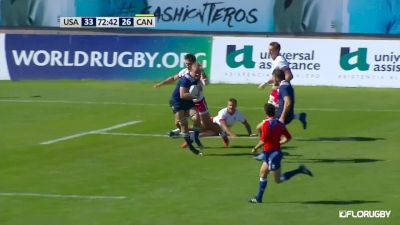
The Americas Pacific Challenge is a tough tournament for the USA, because it is designed to make it tough.
The whole idea of the APC is to educate players who are close to test-match ready and put them through the process of assembling, preparing and performing on the field. For the USA players, living in a large, widespread country, getting together and forming a team is especially difficult.
So, now, to last year. Here's a period of play for the USA Select in the 2016 APC. This is from the first half of the game against Fiji, and it's a good lesson on some of the struggles the USA players face, and can overcome.
What Is Possible
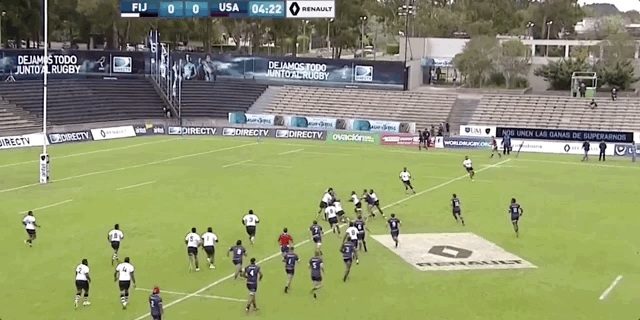
This is a very nice try from the USA to open the game. Off the lineout, the USA Selects power it into the middle, get quick ball, and spin it wide to Matai Leuta and score in the corner. It's basic, clear, and exactly what they want. That efficiency at the breakdown, as much as anything, didn't last.
There's A Ref On The Field
The APC is also a good test for referees looking to get more international experience. They make mistakes, and sometimes, if that referee has a preconceived notion as to which team knows what it's doing, they lean a certain way.
Then you get 50-50 calls that can hurt one team repeatedly. This happened enough times in the USA Selects vs Fiji A team to change the tenor of the game. Here's one example.
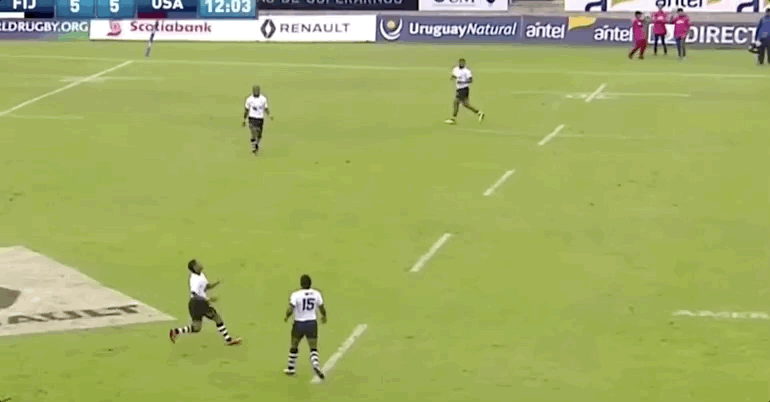
Martin Iosefo runs in to score but it's called back for a knock-on. There is no knock-on. The ball is passed back by the Fijian player and bounces off JP Eloff's head. That's not a knock-on. It's a mistake from the ref, and one that was as much as a 14-point turnaround, as Fiji scored soon thereafter.
In Fact ... Right Here
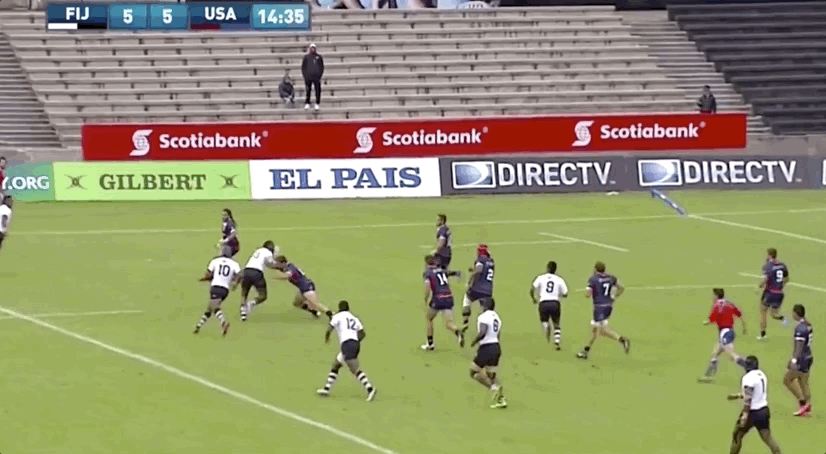
This illustrates what happens when you have players who haven't been playing together much. Fiji scores thanks to a penalty and some nice ball movement off the lineout. But there's this.
See both from the side and from the end zone. Fiji has basically a one-on-five, and scores. Why? First off, Bryce Campbell is the only one who actually makes a tackle. The other thing is, everyone is out of position, Eloff doesn't guard the wing. No one gets between the runners and the tryline. Everyone collapses onto the one ballcarrier.
That is a function of a team that hasn't played together.
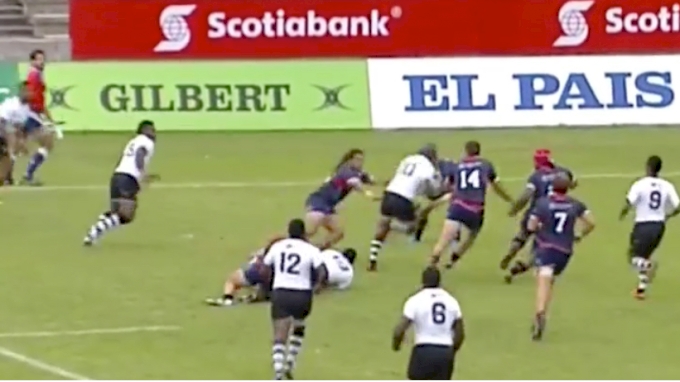 | 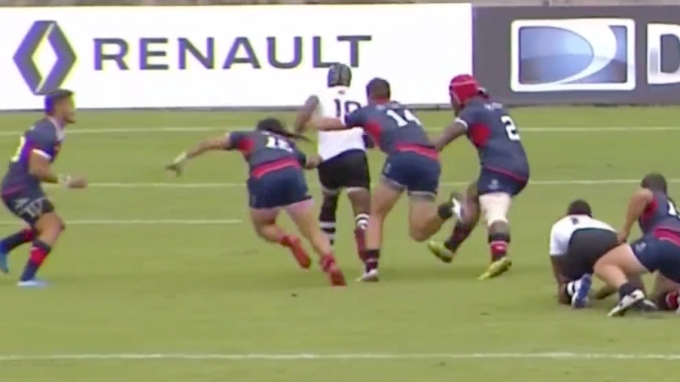 |
Oops
This is a soft try. And it's avoidable, but not necessarily for the reasons one might think.
Eloff gets charged down and Fiji does a nice job to score. But the reason Eloff gets charged down is because of sevens. Several in-residency sevens players were on this APC team, and while they did some very good things, their habits also led to some errors.
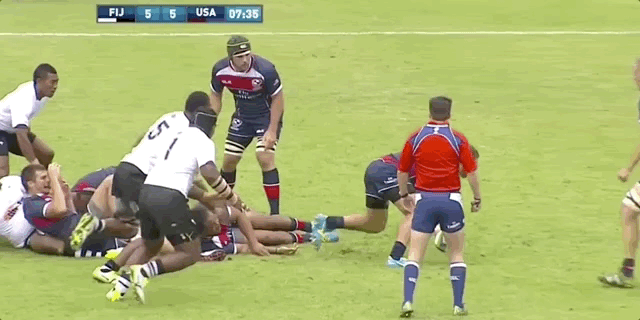
Quick ball is much, much more important in 15s, because you can quickly create odd-man rushes if you get it. Slow ball, or poor ball, has to be controlled and consolidated. In sevens, the ball rolling around at the back of the ruck is just another day at the office, and could be an opportunity. In this situation, USA Sevens player Stephen Tomasin, who played pretty well at scrumhalf in the APC, passes off to Eloff when he should have allowed his forwards (there was one right there) to re-set this ruck and then worry about kicking.
This speaks to the current USA Selects lineup for the APC. There aren't a bunch of sevens players in it, and that's a good thing. finding unity of purpose is hard enough without having to change habits.